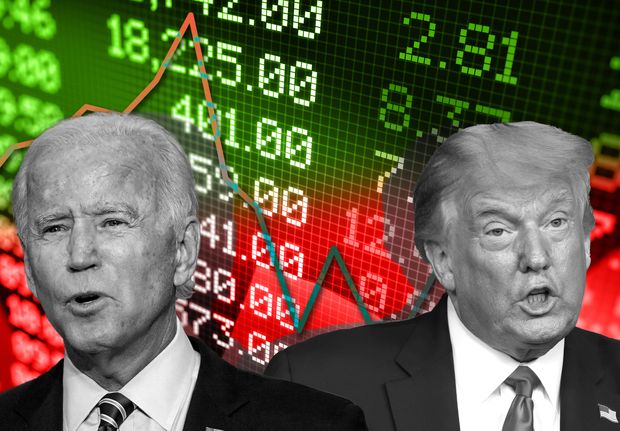
Election Day is finally here. As Americans jam the polls in record numbers, both political parties are pulling out the stops to convince voters that nothing is assured either way and that the race is wide open.
That has investors plenty nervous, naturally. It doesn’t take much to spoil the party on Wall Street on any given trading day. Swings in the hundreds of points are commonplace.
There is heated rhetoric on both sides. If you believe one candidate, a repeat of the Great Depression is assured. If you believe the other, an unchecked pandemic is certain to doom us all and take the economy with it.
Meanwhile, the Senate has adjourned until well after Election Day, so there will be no quick decision on aid for tens of millions of Americans on the edge of eviction and job loss.
It’s impossible to guess what’s next in terms of the political cliffhanger. But two things, no matter who wins the White House, are exceedingly clear at the moment.
First, the party that wins will want to be seen as responsive to the immediate financial stresses being visited upon their fellow Americans. Never mind that it will take weeks, well into Christmas or beyond, for the Treasury to actually cut any checks.
It seems inevitable that Congress will do something, probably something big, soon after the dust settles on the voting process. Counting the votes might take days or even weeks, but that will end. Congress is likely to act swiftly on an aid deal soon after.
The second thing that seems very clear is that the Federal Reserve will keep money cheap for a long time to come. The Fed itself is talking about years.
The underlying reason that the Fed is sitting on interest rates is that the economy doesn’t warrant a rate increase. The Fed’s governors say they want to see rising demand that creates inflation before it acts to raise rates.
All that’s left
So you have these two enormous factors affecting stocks in the short-term, referred to by the financial press as fiscal stimulus (cash from Congress) and monetary stimulus (unusually low interest rates).
Will either of these factors be affected by a Biden presidency? A Trump reelection? The chance of either of these men changing course is low. We’re talking about forces that are beyond the powers of any political leader, much like coronavirus itself.
Nevertheless, much political hay can be made in the short run about your investments and the economy. Be wary of any politician who promises that they can move the country’s economic levers from the confines of the Oval Office.
What this all means is that companies know the landscape ahead. Able managers already have a game plan for change or status quo in D.C. And the data plainly show that stocks tend to rise no matter who’s in charge.
All that’s left is the voting, so if you haven’t yet — please do your civic duty and participate.





